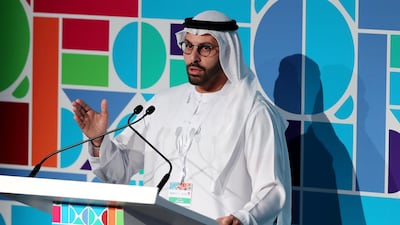The pandemic cost the global creative economy up to 40 per cent of lost revenue and more than 10 million jobs in 2020, according to a joint study by the Department of Culture and Tourism — Abu Dhabi and Unesco.
Launched on Monday at Manarat Saadiyat in Abu Dhabi, the report, titled Culture in Times of Covid-19: Resilience, Recovery and Revival, provides an overview of the pandemic's impact on the cultural and creative industries with policy suggestions for its recovery.
These findings will form part of the discussions that will take place during Culture Summit Abu Dhabi, which will run from October 23 to 25.
In addition to jobs and revenues lost, the report states that, in 2020, in-person cultural experiences declined in gross value added eight times greater than the global average for the whole economy, with some subsectors declining 25 per cent overall.
The report states that all regions were affected, with the Arab states experiencing a slow growth of 1.5 per cent over the period.

The job losses — with freelancers and those on short-term contracts hardest hit — was primarily due to the closure of cultural venues, the cancellation and postponement of events and social distancing measures put in place as a safety precaution against Covid-19.
"This is a massive number,” said Mohamed Khalifa Al Mubarak, Chairman of the Department of Culture and Tourism — Abu Dhabi, at the launch of the report. "These are 10 million people who, a year before that, were making some fantastic content.
“These individuals had something special that they gave to a wider audience and all of a sudden they had nothing left.
“And to make things worse, in certain places there was not the right policies to protect them. That's something that should be a wake-up call for all of us."
Also at Manarat Saadiyat was Unesco assistant director-general for culture Ernesto Ottone, who explained how the pandemic highlighted some of the structural problems within the creative and cultural sector.
"We were confronted during these two years of the pandemic with the technological divide around the world and how that affected digital learning in education, and also how that content was provided by the cultural sector," Ottone said.
"So the problem is we are tackling some issues that existed before Covid-19 placed them in our face. It was like a bomb that exploded and everyone was trying to find quick, short or some longer solutions, but without thinking of the whole ecosystem.”
A blueprint for the future
The report calls for a holistic approach when it comes to cultural policy-making in the wake of the pandemic and as a safeguard against future challenges.
"It is almost like our blueprint to make sure that whatever comes our way in the future, whether economic crises, recessions and pandemics, we are ready for them," Mubarak said.
"We want to make sure we have all the policies and tools to basically deter any difficulties we would face together.”
Some of the reforms identified in the report include addressing the technological divide and supporting struggling regions in making that digital transformation.
Cultural policies also need to be reshaped with a greater focus on collaboration between the government, private sector and civil society to ensure diversity of content and more sustainable initiatives.
Scroll through the gallery below for pictures from last year's Culture Summit Abu Dhabi

















A stronger case for the value of culture also needs to be made, the report states, by positioning its contribution “as a universal public good, ensuring cultural participation for all as a prerequisite for human dignity and well-being”.
Al Mubarak pointed to the UAE as a useful model on how the sector can be integrated within policy circles.
"I think the way we perceive culture, from a governmental perspective, is going to be very different.
“It is no longer going to be seen as an independent sort of entity; it is going to be linked with education, economy, finance, tourism and the list goes on.
“That in itself will provide us with a different view when making policy, moving forward."
More timely and accurate information on the sector’s health is key for better policy outcomes, and this joint report will be the first of more to come, Al Mubarak said.
"We need to make sure that we continuously enhance data and make it available for all regions around the world because the effect of one affects the other and we should never think otherwise.
"We need to continuously collaborate with more institutors around the world to make these reports more robust and attainable for people from all over the world.”
From falconry to sadu, the UAE has 12 traditions on Unesco's intangible heritage lists — in pictures














